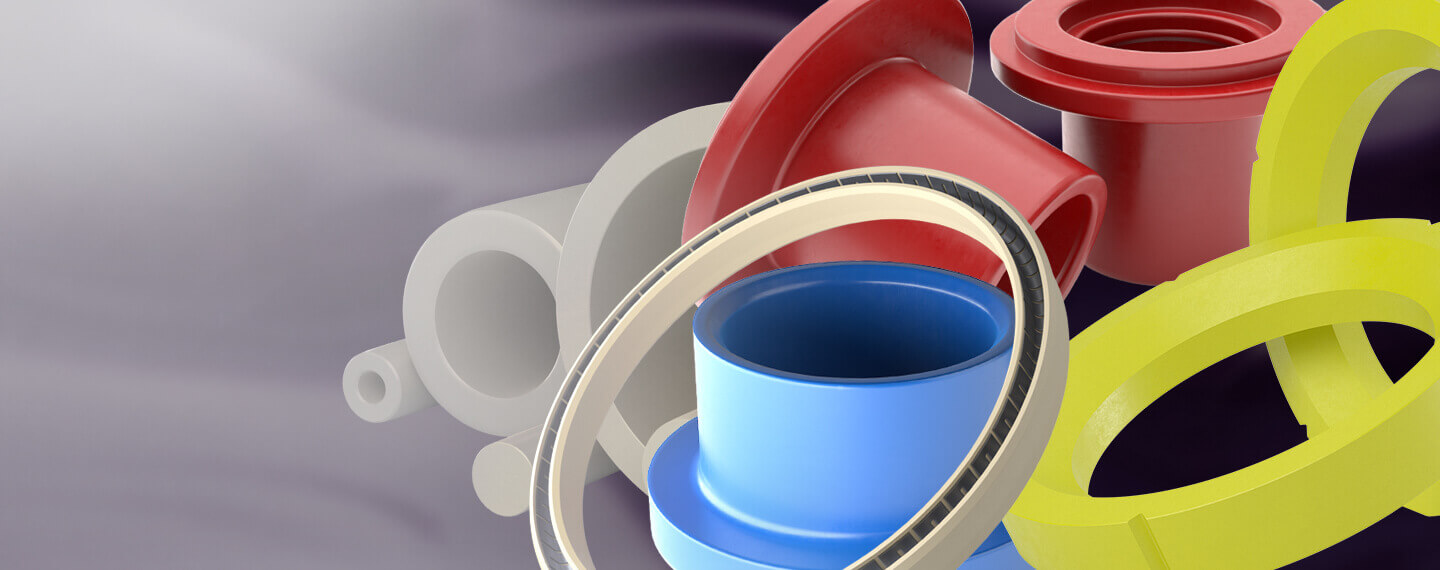You are currently viewing the James Walker Global website.
You are currently viewing the James Walker Global website.

Custom material manufacturing, machining and unrivalled testing facilities combined with dedicated research and development are just some of the highlights of our engineered thermoplastics technology.
Our Devlon custom-engineered thermoplastic materials are amongst the toughest and hardest wearing available and provide a comprehensive range of wear resistance, impact strength and toughness with almost limitless application potential.
Devlon is designed to solve the problems of wear, corrosion and lubrication, directly replacing traditional components, such as engineered seals manufactured from materials such as bronze, brass, hardened steel, laminates and incorrectly specified low performance plastics.
To ensure we support our customers in solving their specific challenges across the broadest range of temperature and chemical demands, we also work with a range of additional materials to cover a wide spectrum of applications. The most common of these include PEEK, PTFE, PCTFE, HDPE, UHMWPE, PET, Nylon, Acetal and Vespel.
Our entire material portfolio covers application temperatures from -196°C (-320°F) to +350°C (+662°F).
We undertake the following activities on-site:
Our strength lies in our total control of the entire engineered thermoplastic production process, from initial design through to the end of the manufacturing process, every step is undertaken and controlled in-house.
We exercise complete control over the formulation and compounding of the basic materials from which our products are manufactured. Multiple Devlon thermoplastic materials are mixed at the point of casting using modern techniques which allow instantaneous switching between formulae and colours of materials being cast. This offers optimal production flexibility and allows rapid reaction to urgent requests without unduly disrupting the manufacturing process.
The casting process differs from injection moulding and extrusion in that it produces a product by polymerisation directly in the mould.
Polymerising in the mould produces a material with a higher molecular weight and crystallinity. This in turn leads to improved dimensional stability, easier machinability and higher compressive and tensile strengths than those achieved by extruding or moulding.
The process of polymerisation produces a chemical chain reaction, forming several of our Devlon grades. These Devlon grades consist of three main components:
Additives, such as plasticisers, lubricants and heat stabilisers can be used to modify or improve the material's performance.
The technology behind these additives is what differentiates us from the competition. The dosage of additives influences the reaction and by varying the volume of components and additives in the mix, our technologists produce materials with specific properties to suit the requirements of each customer challenge and application.
Dimensional stability within close tolerances for complex components is achieved by interstage annealing, which guarantees that the components delivered to our customers are safe, reliable and will achieve their maximum life expectancy.
Where required, we can support our customers with custom casting capabilities and complex assembly project management.
On-site, we are pleased to be able to offer extensive and often unrivalled testing, including:
Materials testing:
Finished product testing:
Some of our testing highlights include:
Through our innovative approach, we identify areas where our materials will offer performance improvements and cost savings.
The relevant grade of material is then selected, based on the requirements of the application, custom thermoplastics may be developed if required, before CAD technology is used to model and design components.
We work in partnership with customers and clients throughout the development process until the design is approved and transferred to the manufacturing floor, where our bespoke facilities allow us to cast and machine individually tailored products capable of performing in the most demanding environments.
When required, we can manipulate and modify designs using 3D solid modelling techniques to reduce the necessity for early prototypes and help reduce development costs. We can also undertake finite element analysis and kinematic simulation, which allows components that are intended to fit within other assemblies to be validated at the design stage before any investment in tooling.
Application of these techniques not only allows new designs to be optimised in the most cost effective manner, but can also troubleshoot and improve existing components.
Furthermore, thanks to our in-house capabilities, we are able to offer complex assembly project management to support our customers in solving their challenges.
Operating a process-based management system within a lean manufacturing framework and actively supporting a culture of continuous improvement, we recognise that quality is of the highest importance.
Extensive quality checks are carried out at all stages of manufacture, from incoming raw materials through casting batches and every step of the machining and finishing process to ensure that the finished product measures up to design criteria, customer specifications and any relevant industry standards.
Our engineered thermoplastics facilities are certified to, and operate within the scope of, BS EN ISO 9001:2015 and BS EN ISO 14001:2015 and on-site we use equipment including CMM, Keyence digital systems and software and offer a temperature controlled inspection area.
Want to discuss your project, engineering or materials challenge expert to expert? Simply provide us with your contact details and a little information about the application you are working on, and one of our experts will contact you as soon as possible.